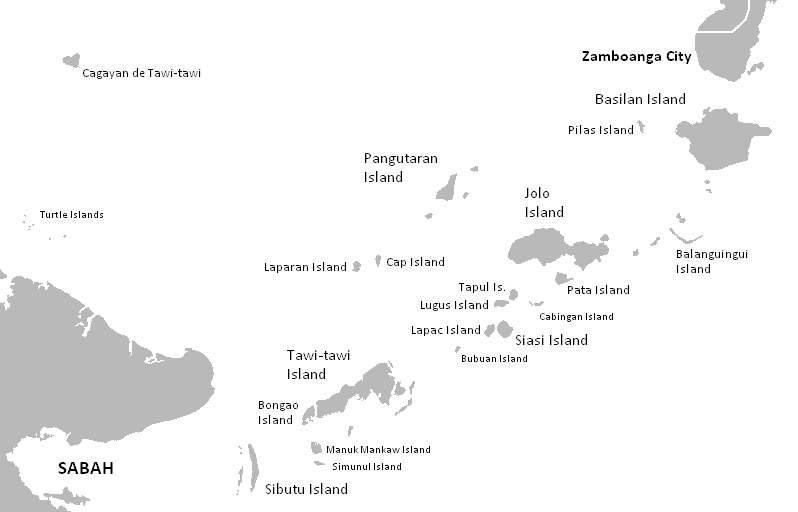UP professor urges sustainable blue economy for coastal communities
By Ivy Tejano
DAVAO CITY – A University of the Philippines professor has urged policymakers and stakeholders to adopt strategies that balance economic growth with environmental protection to ensure long-term benefits for coastal communities in Mindanao and the Philippines.

SULU Archipelago
Prof. Jay Batongbacal, head of the University of the Philippines Institute for Maritime Affairs and Law of the Sea, made the call during the recent “Embracing the Currents: An International Conference on the Sulu Archipelago” at the Mindanao State University in Bongao, Tawi-Tawi.
Batongbacal emphasized the need for a new paradigm that embraces blue economy while ensuring sustainable development, as traditional economic models have often failed to address the needs of coastal communities reliant on marine resources.
He said the Philippines is shifting to a blue economy by combining academic changes, economic strategy, and national security. He added that there is a need for a new approach with the West Philippine Sea (WPS) playing a key role in the country’s growth.
Batongbacal defined blue economy as an economic system that conserves marine and freshwater environments while sustainably utilizing them for economic growth and resource development, including energy and food production.
Archipelagic and Oceanic Virtual University
Batongbacal said the university launched the Archipelagic and Oceanic Virtual University (AOVU), a pioneering program to enhance marine resource management to support the initiative that offers four master's degree programs.
He said AOVU’s transdisciplinary approach would integrate various fields from the Blue Economics and Engineering, Economic Security, Archipelagic and Oceanic Environment, and Social Studies programs to provide a comprehensive understanding of maritime issues.
“The programs reflect a transdisciplinary approach, integrating diverse fields of study to provide a holistic understanding of the archipelago's complex issues. It would embrace a decentralized, personalized, and self-paced learning model,” Batongbacal said.
Batongbacal said that the AOVU represents a significant shift in approach, recognizing that the archipelago’s future lies in its waters. With this, he said they aim to nurture a pool of experts and professionals who will contribute to planning, research, and policy-making.
“We want to begin with graduate and post-graduate programs and professional or continuing education training programs. This will strengthen and empower the country to take possession of its territory and utilize its sovereign rights over its resources,” he said.
The educator said the initiative also aims to support the implementation of the Blue Economy Act and establish offshore research centers in key marine areas, including the WPS, the Pacific Seaboard, and the Sulu-Celebes Sea.
Batongbacal said the WPS remains critical for the Philippine economic and security interests. He added that the blue economy is not just an economic strategy but also a matter of national security.
“Establishing offshore research centers and AOVU’s focus on economic security and integrity reinforce the country’s commitment to asserting its maritime rights as the Philippines navigates the complex challenges of the 21st century,” Batongbacal said.
The pending Blue Economy Act, the proposed Center for West Philippine Sea Studies, and the declaration of National West Philippine Sea Day reflect the government's resolve to address the challenges in the region.
BARMM supports blue economy initiatives
Bangsamoro Autonomous Region in Muslim Mindanao (BARMM) Chief Minister Ahod Ebrahim backed blue economy initiatives. He underscored the potential of the blue economy to create a resilient and inclusive regional economy.
He cited opportunities in sustainable fisheries, agriculture, renewable energy, and ecotourism to drive economic growth while preserving natural resources. He said such initiatives help promote fair development by prioritizing the needs of farmers, fishermen, and small business owners.
The Bangsamoro region covers the Sulu Sea, Celebes Sea, Moro Gulf, and Illana Bay. Ebrahim said BARMM seeks to explore renewable energy sources such as solar, wind, and hydropower to reduce dependence on fossil fuels.
BARMM Planning and Development Director General Engr. Mohajirin Ali cited the significance of integrating local value chains with sustainable practices for economic growth. He said experts work with Bangsamoro planners to create a sustainable and inclusive development model.